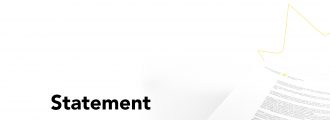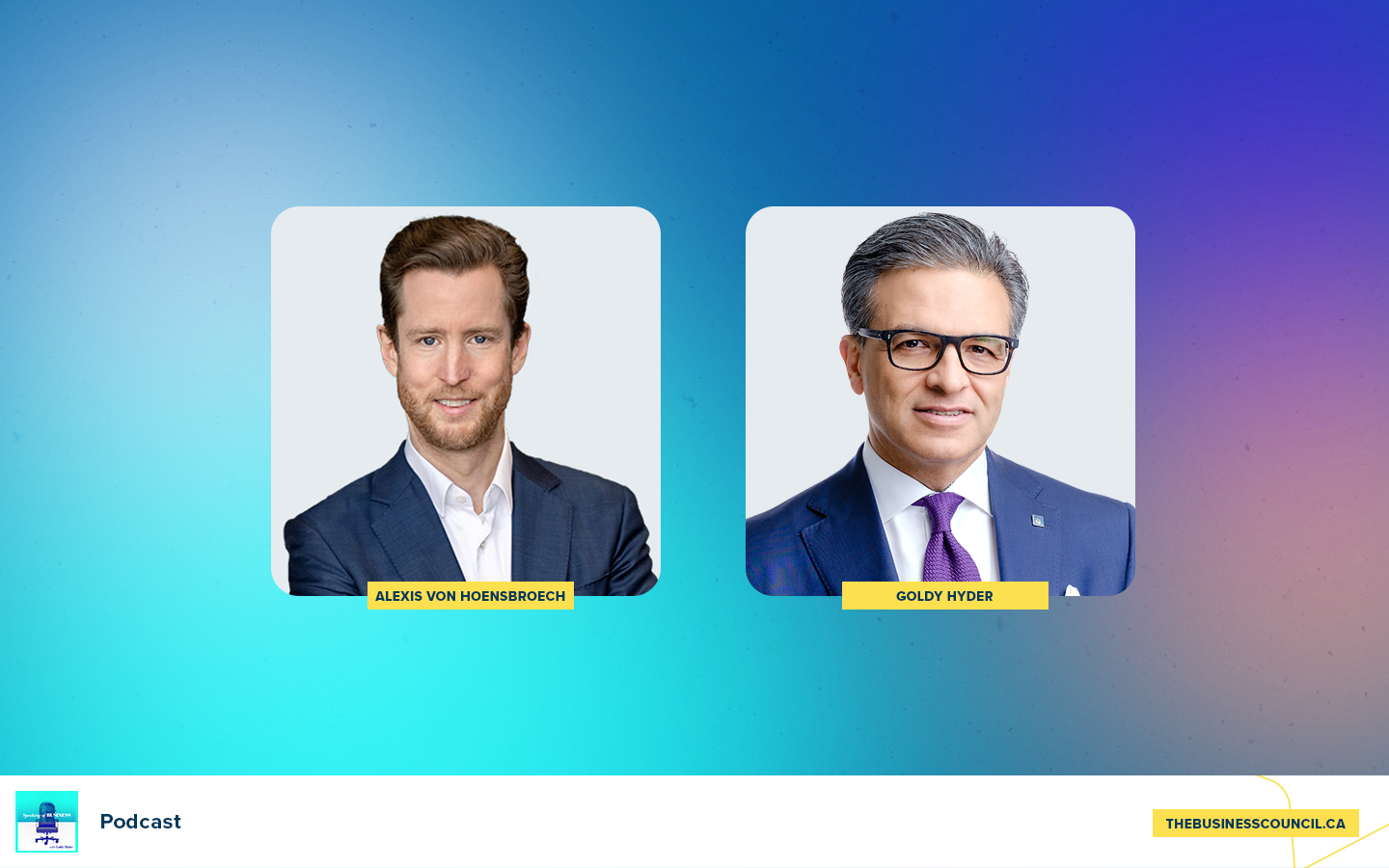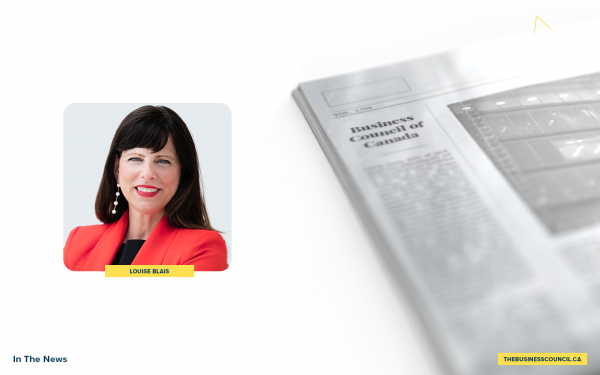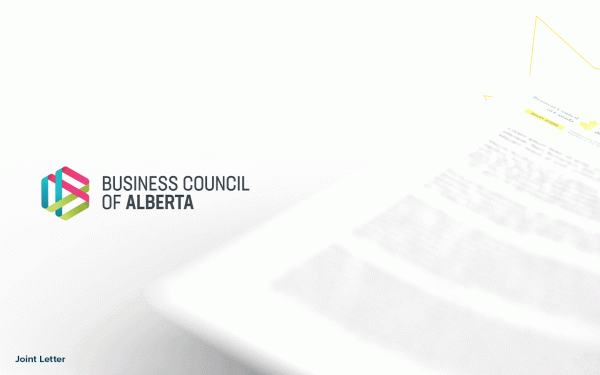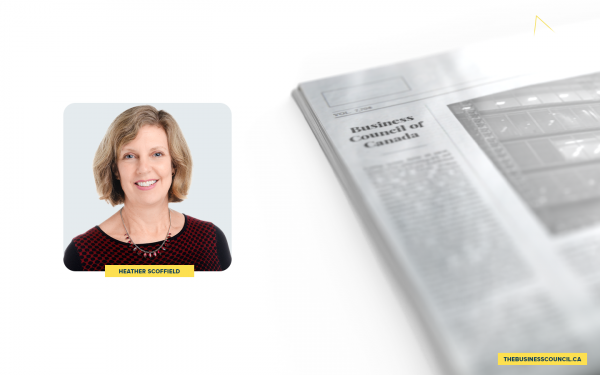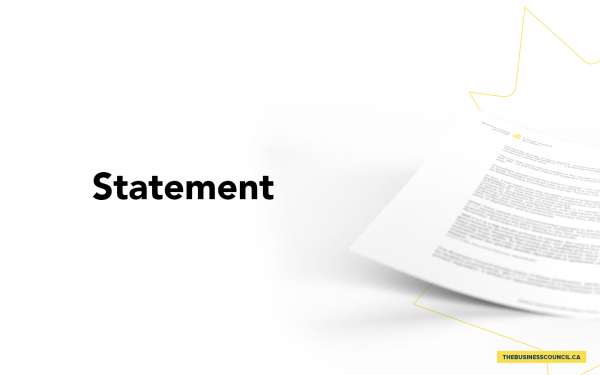Bringing fresh perspective to Canadian air travel: Alexis von Hoensbroech
Twenty-seven years ago, WestJet took to the air with just three aircraft and five destinations. Today, the Calgary-based airline serves more than 100 cities across four continents.
Overseeing the operation is CEO Alexis von Hoensbroech. He’s a newcomer to Canada but not to the industry, having spent two decades working for and running airlines in Europe.
When he arrived in Canada last year, he was struck by the country’s rugged geography and “sheer size”, which brought home to him the importance of air travel.
“In Europe, if you want to get from city A to city B, you have tons of options,” he says, including air, rail and road. “You can even take a bicycle in many cases. [Cities are] not very far apart.” That’s hardly the case in Canada, where the alternative to air travel is often a journey lasting several days.
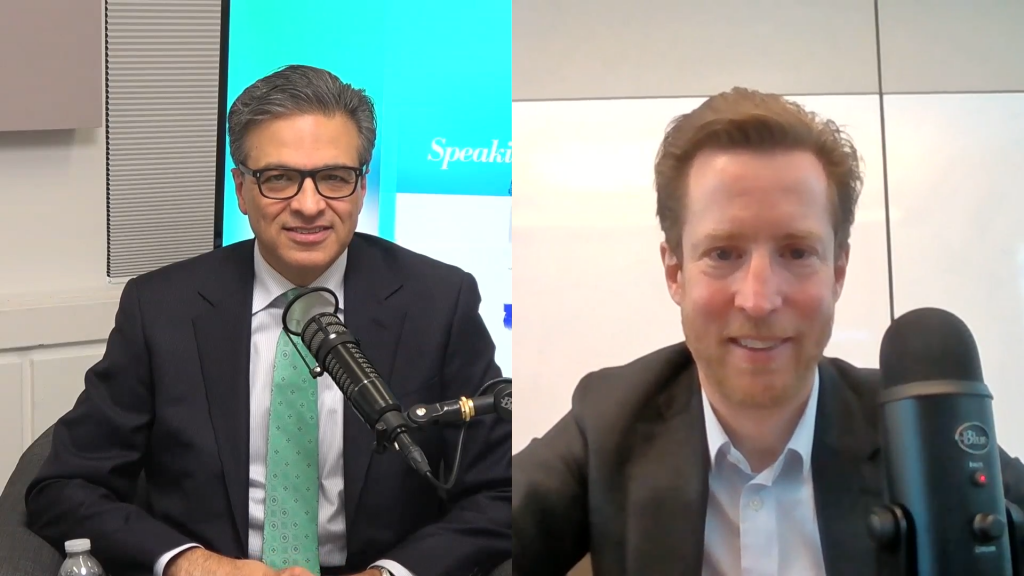
“Aviation and airlines are an absolute essential service for thousands and thousands of communities … This is just a geographical fact,” he tells Goldy Hyder on the Speaking of Business podcast.
Given that, von Hoensbroech says he’s surprised that government-imposed surcharges on air travel – including airport rent, security and navigation fees, and federal taxes – are “far more expensive” in Canada compared to other countries.
“I’m surprised that the government is not putting more effort into making aviation more affordable,” he says. “Actually, they’re doing the exact opposite.”
Listen to Goldy Hyder’s full conversation with Alexis von Hoensbroech – including his thoughts on the Calgary Stampede, and which NHL superstar hails from his hometown in Germany – on the Speaking of Business podcast.
Subscribe
You can find Speaking of Business wherever you get your podcasts.
Latest Podcasts
Transcript
Alexis von Hoensbroech:
There’s sometimes a misperception that business is something evil and bad. I think the exact opposite is true. Business is what’s creating jobs. Business is what’s creating wealth. Business is what is creating those tax incomes that the government has that it can redistribute to those people that are underprivileged.
Goldy Hyder:
Welcome to Speaking of Business, conversations with Canadian innovators, entrepreneurs, and business leaders. I’m Goldy Hyder, president and CEO of the Business Council of Canada.
27 years ago, WestJet took to the air with three aircraft and just five destinations. Today, that same Calgary-based airline flies to more than 100 destinations across four continents, and the person overseeing the whole operation is CEO Alexis von Hoensbroech. He’s a newcomer to Canada but not a newcomer to airlines, having worked in the industry for two decades in Europe.
What similarities and differences are there between the Canadian and European experiences? And where does Alexis see WestJet going in the next 27 years? Let’s find out. Welcome to the podcast, Alexis.
Alexis von Hoensbroech:
Thank you, Goldy. Happy to be here.
Goldy Hyder:
Well, look. You came to Canada a year ago. I think it was February of 2022. And you came after spending two decades in the airline industry in Europe. Why WestJet? Why Canada?
Alexis von Hoensbroech:
That’s a pretty good question. I did work 16 years in the Lufthansa Group in various roles. Before that, I was a consultant, also a specialist in aviation. That’s why I spent roughly two decades in this industry.
At some point in time, you think about what’s the best possible next step that I could take, and so this has a professional component and also a private component. I thought for the third third of my professional career, it would be great to start on a new challenge.
And at the same time, my wife and I, we had a lot of discussions around, do we want to spend all the time that we have with our kids in a German speaking environment? Or would it make sense to actually move to an English speaking environment? These two factors together made Canada very attractive as a potential destination.
And then as the opportunity with WestJet came up, I was actually really energized, because WestJet is known worldwide as an entrepreneurial success story, as a company with a tremendous culture. And when I heard that this would be an opportunity I could take up, I was really fascinated.
And then I met the owners, that’s Onex, a private equity group that owns WestJet, and got along with them really well, had a very good impression about them and about the team, and thought, “It’s a great story, but it also has loads of opportunities.” And these two things together convinced myself and my wife to take this opportunity and come over to Canada.
Goldy Hyder:
Well, I think we’re lucky that you did. Let me dive into some of the things. First of all, I should say, as you know, I’m a Calgarian. I was there the day WestJet got launched. I remember watching it on television.
And I think the stock was 10 bucks or something like that when it kind of started out, and it’s been a heck of a ride. And it’s been great to see such a success story coming out of Calgary, coming out of Alberta, and coming out of the west.
But let’s go back to you. When you joined Lufthansa Cargo it was in 2014. You had described yourself as sort of the new kid on the block. Is that how you’re feeling again in Canada?
Alexis von Hoensbroech:
Indeed. When I joined Lufthansa Cargo, it was mainly because I was moving from the passenger side to the cargo side, which is a totally different business. But now again, also I’m probably again the new kid on the block, although for someone who’s 52, maybe kid’s the wrong word, but it feels like that, and-
Goldy Hyder:
I’m good with it if you’re good with it.
Alexis von Hoensbroech:
Yeah. Yeah. It’s all good. And it is quite an experience. If you go to a new country into a new company where don’t know anyone, and all on your own, because my family actually stayed back in Austria for the first six months, and later they joined, and then coming to Calgary on February 15, which was, I think it was minus 25 degrees, and so it was definitely a move out of the comfort zone.
But it was also a very rewarding thing. Canadians are known to be very friendly and very welcoming, and they did not fall short of this expectation. That was great. I was received really well from an extremely capable team.
And we pretty quickly came up with a good plan, what we want to do with WestJet and how we want to serve more guests and bring better air service to Canadians. And so I’m very confident that we can continue the 27 year success story of WestJet for at least another 27 years, and that’s great.
At the same time, it all happened at the end of the pandemic, which is of course a specific challenge in itself, because our industry has gone through probably the worst crisis that you can ever think of. And to rebuild a company out of such a crisis is a massive challenge, as everyone has seen last summer I suppose, and still is.
There’s still a lot of work to be done, but as a business leader, what you want to do is to shape things and to make things better. And there are lots of opportunities to shape and make things better, and that’s what gives me a lot of energy.
Goldy Hyder:
I know we’re going to be diving into that, but before we do, I’m struck by the fact that of course, you’re an immigrant. You have immigrated to Canada, and you’ve got your family with you. As you know, Canada has tremendous support for immigration. And where would we be without it?
What was that experience like? How is the process? Because as you know, there’s some challenges in the system today. Getting into the country, is it as efficient as described?
Alexis von Hoensbroech:
In my case, it was a pretty smooth process, but I’m not sure whether this is representative for how other people experience it. I entered the country on a two year work permit, which is the usual way how it works. It was approved in a very fast way. There was no issues.
And then after I got this two year work permit, I then applied for permanent residency and got expedited on it. Actually, I already received my permanent residency in less than a year, so I think that’s great. But there are some smaller hiccups in the system. I’ll just give you one example. I just don’t understand certain regulations. You come here. You become a permanent resident, but it takes an indefinite time until you get your permanent resident card.
But when you are approved as permanent resident, you lose your ETA, which is the thing that you need for entering Canada. But as you don’t have your permanent resident card, you actually can’t travel anymore until you get it, but you don’t know when you’ll get it. This is a bit of a often odd thing.
Goldy Hyder:
Now, tell me that isn’t rich with irony. The guy who runs WestJet can’t travel anymore. But look, before we leave that, I think it’s really neat to see your country through the eyes of someone who’s come to it from somewhere else.
I want to stick with Canada for a minute if I can. I want to ask, what kind of surprised you when you came to this country? What surprised you about Canada or Canadians?
Alexis von Hoensbroech:
First of all, as a European, you always have an image of a country like Canada, and this image is very, very positive. In Europe, we think the Canadians are the better Americans, and I think that’s what I found when I got here. That’s great. It’s a vast and beautiful country, beautiful nature, and Calgary is a fantastic place close to the mountains.
But still, you don’t realize certain things that you could have realized before, but you don’t realize them before you’re here. The challenges of this geography in terms of sheer size and how in Europe, if you want to get from city A to city B, you have tonnes of options. You can take an airplane. You can take a train or car, a bus. You can even take a bicycle in many cases. It’s not very far apart to travel, so you have multiple options.
But in Canada, for the majority of the communities, there’s actually no other way of traveling than taking an airplane. Take a place like Calgary. There are 1.6 million people living in Calgary, but if you don’t take an airplane, or if there wouldn’t be airplanes, you actually wouldn’t be able to get to and from Calgary, and this place would not have 1.6 million people in its urban area.
So aviation and airlines are an absolute essential service for thousands and thousands of communities that would not be able to sustain what they are today if there weren’t airlines. This is just a geographical fact.
At the same time, I was surprised how little strategic the government is actually approaching air travel, because I was surprised to see how expensive it is to buy an air ticket here. And this is not because the airlines are making so much profit, which they actually aren’t, but it is because the infrastructure costs in Canada are just incredibly high.
If you fly from Calgary to Toronto and back, you pay $140 on infrastructure alone. This is airport, security, navigation. And then because of the long flight length you pay another $140 on fuel. The first $280 of your airfare have been paid before you start to pay for an aircraft, for a pilot, or for anything else.
And this is far more expensive than it is in other countries. And given how essential aviation is in Canada, I’m a bit surprised that the regulations or the government is not putting more effort into making aviation more affordable. Actually, they’re doing the exact opposite. And this is a bit surprising for me.
Goldy Hyder:
So normally, someone would say, “Is there enough competition in Canada?”
Alexis von Hoensbroech:
It’s a pretty competitive place. To start with, myself and also WestJet, I’m a big advocate for competition. And WestJet has been the driver of competition in aviation in Canada.
Since WestJet entered the market, the domestic passengers doubled and the airfares halved. We really believe that low airfares and high competition is good. And if you look at the current competitive space, it’s actually got even more competitive than it was before. On many routes, you have seen a doubling of the service providers.
If you look at a route like Vancouver to Toronto, which is the biggest route in Canada pre-pandemic there were three airlines flying. There was WestJet, Air Canada, and Air Transat. Now there are six, and 30% more capacity, because a number of startup airlines actually entered the market during the pandemic. This market is very competitive right now.
But even the strongest competition will not bring down your cost of infrastructure. If you see someone offering $10 or even $50 flights from Calgary or from Vancouver to Toronto, you know that this airline would be better off giving you money for not flying than flying you.
Goldy Hyder:
That says a lot. Well, let’s drill down in that, because part of that is a competitiveness issue for the industry and for the country. What else is different about what you face in Canada than what you did in Europe?
Alexis von Hoensbroech:
The way airports are being run is quite different, so-
Goldy Hyder:
How so?
Alexis von Hoensbroech:
Government controls.
Goldy Hyder:
Right. And what are they in Europe? They’re private?
Alexis von Hoensbroech:
Yeah. They are usually privatized. Many are owned by the government, but they are privatize, so they are run as for-profit organizations.
Goldy Hyder:
Arm’s length. Yeah.
Alexis von Hoensbroech:
The way it works in Europe is that they have one part of the business which is called the regulated business. That’s where the actual airport function is basically connecting guests to the aircraft. And so on these, they calculate their fees based on the cost, and this has to be approved by the government.
This is, by the way, different. The airport fees in Canada don’t have to be approved by the government. It’s sort of an unregulated monopoly that you are having here in Canada. But this is only the regulated part.
And then they run something that’s called unregulated, and these are side businesses like retail, like rental, like parking and so on. And on these unregulated pieces of the business, they actually make a lot of money. And as they make a lot of money on these, they can actually afford to offer better infrastructure and lower fee structures to the airlines than Canadian airlines can.
On top of this, Canadian airports are actually forced to pay a rent to the government, which European airports don’t have to pay, because they actually own their land. And this rent has been extracting billions over the last years, and these billions end up in the federal budget, which is nice for the budget but actually leaves the airports underfunded.
And the same structure also forces the airports to do all their financing through debt. As they are not-for-profit organizations, they actually have no access to the capital market, which again, is bad, because especially in the high interest rate environment, this gives them a disadvantage over other commercial entities.
I think all of this compounds into a structure that is high on cost and not achieving the same level of superior infrastructure similar that you actually find in other parts of the world.
Goldy Hyder:
Right, which ultimately harms the passenger. Who pays, at the end of the day?
Alexis von Hoensbroech:
And this should be a country with low airfares, because as we already said, for many, this is the only way to get to and from their community. And so therefore, there should be an interest to keep fares low.
And the other thing that I think is interesting, at least, there are quite some passenger rail services in Eastern Canada, and they are subsidized with tax money, big time. There are hundreds and hundreds of millions of dollars going into subsidizing those rail services, which in itself, I don’t criticize. That’s fine, because it’s good to have good rail service.
But what I think is maybe not a fair treatment is that those passenger rail services get hundreds of millions in subsidies, while the air sector that is probably far more essential than rail is actually rather seen as a source of money for the government instead of a service that should be affordable to Canadians. And that’s something that I find a bit puzzling.
The US treats it differently. In the US, air infrastructure is actually subsidized with tax money to make air travel more affordable, and it is more affordable in the US.
Goldy Hyder:
Oh, yeah. It’s far cheaper down there. I think Canadians know that, especially those ones who live close to a border and head down there and take a flight from there.
I want to go back to sort of your experience here in Canada over the last year. You arrived, I think, effectively when Omicron was sort of in its last legs, and within a matter of months, demand surged. It surged well back to pre-pandemic levels and then some.
But there was carnage that had occurred over the course of the COVID period itself, particularly in terms of the supply chain, particularly in terms of labour. Just help the listener understand, how did you navigate this transition? Because nobody gets trained for this. It’s real time experience.
Alexis von Hoensbroech:
Yeah. No business school teaches you those things, but this pandemic was really an extreme case. I remember, I was still the CEO of Austrian Airlines when this all started, and within three weeks, the demand dropped to a level from 100 to zero, basically.
After three weeks into the pandemic, we actually shut down the entire airline. I had to stand in front of my staff and send 7,000 people home and tell them, “We hope that we can call you back, but we don’t know when, so let’s see.”
Goldy Hyder:
How hard was that? Seriously, how hard-
Alexis von Hoensbroech:
That-
Goldy Hyder:
… was it to do that?
Alexis von Hoensbroech:
For me personally, I think this was the hardest day in my professional career, because you’re running a business. Everything is fine, and you’re working on optimizing it. And then suddenly, it breaks down to zero, and you have to ground the entire airline.
And then you stand there, and suddenly you are at the brink of insolvency, and you are getting dependent on third parties to save you. And this doesn’t feel right, because we would like to-
Goldy Hyder:
Be self sufficient.
Alexis von Hoensbroech:
… live on our own merits and be self sufficient. And I was standing there and realized we have a certain amount of money on our bank account. We are not making any revenues anymore, but we do have costs. I had a line of sight of less than two months until I was running out of money, and that didn’t feel well.
I had to walk to the government and negotiate a bailout with the government, which of course, was tough in itself. And for a period of two to three months, I did not know whether we actually will ever make it.
In the end, we did make it, and there was great support by the government. There was great support by our staff, even great support by our unions and our suppliers. In the end, as a collective thing, we actually managed to save the company, but this was really devastating.
When I joined WestJet, we were at the end of the pandemic, which by the way, took much longer than we all expected. On the day I arrived, the government lifted the majority of the COVID restrictions, which was good. But rebuilding a company basically over a couple of months on a scale that usually would take more than a decade is obviously also tough.
Goldy Hyder:
Wow.
Alexis von Hoensbroech:
Pre-pandemic, we had 14,000 employees. In the pandemic, it went down to 4,000. And then it took two years in the pandemic until the demand started to surge back. No wonder, if you have to grow by more than a decade worth of growth over three or four months, that this comes with massive challenges.
And don’t forget, it’s not just the airlines. It’s everyone in the ecosystem. I will say, whenever anything goes wrong in our industry, everyone points at airlines. But factually, it’s actually a shared product that we produce jointly with airports, with security agents, with border control agents, with ground handling agents, with navigation providers, and so on.
And every chain is only as strong as its weakest link, and if one of these providers is not holding up to the level it should, then it creates a problem through the entire system. And we did see all the problems on security. I’m not saying that we didn’t have our own challenges as well, but rebuilding this in such a speed, no wonder this comes with operation challenges. But it also got much better now.
Goldy Hyder:
It’s interesting that you had, within a year or so, the experience of the hardest day of your life, where you’re basically telling 7,000 people, “You need to go home, and I hope to call you back, but I can’t be sure,” and then here you find yourself in another country ready to scale up at levels that were, as you just said, decade normally, being done in months.
What did you learn from that experience versus what you had to go through in Austria? It’s the art of the possible, right? You did it, at the end of the day.
Alexis von Hoensbroech:
And maybe for me, this is the biggest takeaway of the entire crisis. If anyone would have told me before that this is going to happen, then I would have said, “Yeah. Okay. Then we switch the light off, and we all go home and try to get a new job.”
And the fact that we are still around, it looks like a miracle. It’s fantastic. And it shows me what people can actually achieve if they really have to achieve something. If things get really, really bad, people get just extremely creative, and I was impressed when in my previous role, but also here, the art of the possible, what is actually possible.
And we saw that on a larger scale as well. Normally it takes whatever, a decade plus to create vaccines, and in the pandemic, it took less than a year. And this was basically the same. All the flexibility, all the creativity that suddenly came up to extend the sort of life, despite having no business, was impressive. And then to see how everyone stepped up to bring back our business after the pandemic was also highly impressive.
But it comes with massive pain. Last year, we at WestJet alone, we employed 3,600 people. And so we had 6,600 training classes. Just imagine what kind of scale comes with this. Every single person has to deliver a service, has to be trained, and has to gain experience which they don’t have. Actually all our players in our industry are currently looking at a very junior staff because many people have left.
Goldy Hyder:
Even pilots would have had to have gone through sort of the simulator again. They hadn’t flown a plane for a year or two.
Alexis von Hoensbroech:
Yes. Of course. They didn’t fly for long, and they now had to be retrained, some of them at least. But when you look at airport workers, for instance, we hire them off the street. We give them a short training, and then they stand there at the gate or in the baggage system and so on.
For them, it’s actually pretty tough, because two thirds of our airport workers have been hired last year. No wonder there’s not only a lack of staff but also a lack of experience. Good thing last year was every three months, we doubled our work experience .
Goldy Hyder:
No question. I want to stick with a really important theme here. On the one hand, I think you aptly said the resilience of the human spirit was proven. People can persevere. We can overcome. But not everybody did. When I speak with CEOs across this country, especially during COVID, almost universally their concern was for the mental health and the wellbeing of their employees. How did WestJet manage that? Because no one was immune from this. Everybody had this challenge.
Alexis von Hoensbroech:
I can speak a little less to WestJet, because I actually haven’t been at WestJet when this all happened. But there were a couple of things that I observed.
One is that people reacted very differently to this crisis depending on their personality. And someone once said, “It’s in the crisis when people show their real personality.”
And I saw some people who really grew above and beyond in the crisis. And others got into a real panic mode, and they basically froze in where they were, because they couldn’t move anymore and couldn’t deal with the situation.
This was one thing that I found interesting.
The other part was, what do you do with your staff? And how do you deal with them? And our case was most extreme, because we actually literally sent them home, and they had no more work. Obviously, communication became extremely important. At the peak of it, we actually ran weekly virtual town halls and talked to our staff and had a way to interact with them with questions and so on.
And of communication in itself, it’s also a question of what you communicate. And it’s also important in such a situation, this is at least my experience, that honesty and trying not to disguise the problems we are in is very important, because everyone knows that we are in a difficult spot.
Goldy Hyder:
Nothing like the truth, is there? Nothing like the truth.
Alexis von Hoensbroech:
Exactly. Nothing like the truth. Honesty and openness, very, very important. At the same time, as a manager, you have to absorb all the frustration, but you have to output confidence, which is not easy at times. But to be honest about where we are, but also to show confidence about that we will eventually get out of this, that’s key. And if you’re able to get this across in an authentic way, which requires that you actually believe it, then this can be very powerful.
And that was, for me, probably the one thing that took me and our staff through the crisis. And I think this was no different at WestJet, and still is, because it’s not all behind us yet, and we are still in the rebuilding mode.
Goldy Hyder:
And speaking of rebuilding, you’re effectively refashioning WestJet, to some extent taking it back to its western roots, if I can say that. What led to that decision? What does that look like as we look ahead?
Alexis von Hoensbroech:
A couple of things. One is WestJet has been extremely successful pre-pandemic as one of the most consistent profit making airlines in North America, which is good. At the same time, WestJet got also involved in many fields over time.
Goldy Hyder:
Lacked focus, you mean? Did it lack focus?
Alexis von Hoensbroech:
Yeah. Yeah. It became a bit everything to everyone. Originally, it was a pure local airline, one type of aircraft, low fares, high productivity and so on. And then started to embark in putting in premium, getting regional airplanes, getting into wide bodies, running hub and spoke systems, and then also growing strongly in eastern communities, which of course, is a very different competitive environment than western regions, where also our brand has a different reputation in these over the west.
We looked at this coming out of the pandemic, and being forced also to focus on those things that we know that we can be successful, because we do have scars on our balance sheet. We were one of the very few airlines, if not the only major airline that actually did not take on any government support during the pandemic, because we felt the government support offered in Canada was actually so expensive that we’d rather do it without it, which by the way, is another competitive distortion, because in the U.S. for instance, the carriers did receive loads and loads of tax money.
Goldy Hyder:
And Europe, for that matter, tens of billions.
Alexis von Hoensbroech:
Yeah. Tens of billions, so they actually exit the pandemic with a strong balance sheet, while we exit the pandemic with weak balance sheets. We have to focus on where we have the highest confidence that this will work out, and WestJet has traditionally two strongholds.
One is we are the home carrier of the west. That’s where we were brought up, and this is where we have our strongest position and which works best for us. We want to grow this and strengthen our strength, which is Western Canada.
The second piece is all across Canada, we are Canada’s favorite leisure airline. Even in Eastern Canada, business people will take another airline for flying for business, but they would usually take WestJet to fly on vacation. This is a very strong business that we intend to grow. That’s why next to growing our footprint in the west, we are growing our footprint across leisure business.
And the third piece is that in our industry, it’s important to manage your costs, because you want to drive down ticket prices and make tickets more affordable. You have to be able to produce with low cost per seat, also to be competitive with those new entrants that actually came into the market with the promise of more affordable tickets. Low cost is the third column of what we’re doing.
Now, every good strategy is only really good if you don’t just know what you do, but also you know what you don’t do. And as part of this, we decided that we will not invest further into wide body flying. We consolidated all our wide bodies that we have in Calgary, which brings a lot of wide body growth and intercontinental growth to Calgary, but it in the end is seven out of 180 aircraft, so it’s not a major piece of our business.
The other one is that we decided that we will exit some inner eastern markets, which are pretty well supplied anyway with capacity. We’d rather redeploy this capacity to Western Canada and use it to improve connectivity in western communities that are underserved. This is a strategic shift that we do.
This doesn’t mean that we exit the east altogether, because we’ll still be flying from eastern communities to western communities and from eastern communities to leisure destinations. But within the east, we will fly much, much less in the future and focus into Western Canada and build a really, really strong network in Western Canada.
And by the way, last point, we have a massive order book. We have up to 85 airplanes on order over the next five years. And as they join the fleet, we will grow our footprint very, very significantly. And these are low unit cost airplanes because these are large midrange aircraft, the largest in the market. This distributes the cost across many, many, many seats, which should allow us to drive down costs somewhat further than they currently are.
Goldy Hyder:
Well, there’s no greater commitment to a country, to the passenger than purchasing aircraft if you’re an airline. That’s a good sign.
Alexis von Hoensbroech:
Exactly.
Goldy Hyder:
That’s a good sign.
Alexis von Hoensbroech:
This is a multibillion thing.
Goldy Hyder:
Of course.
Alexis von Hoensbroech:
The list price of this order was $7 to $8 billion. Just to give you an idea, it was a massive commitment.
Goldy Hyder:
Just before this podcast, I had a conversation with Tracy Robinson, who’s the CEO of CN. And I mentioned to her that whether you’re in planes or in trains, there’s this perception of it’s really old economy. Your infrastructure is hard. It’s the same thing from before.
But I also pointed out that it seems that most companies if not all companies are on a journey to becoming a technology company. How does an airline adopt technology to be a part of that journey? How are you doing that?
Alexis von Hoensbroech:
Technology is extremely important in our business. Now, the basic service that we deliver to fly people and freight from A to B, this will not change. This will not change for decades or centuries to go.
Goldy Hyder:
There’s no beaming me up Scotty coming.
Alexis von Hoensbroech:
Yeah. I think this is pretty far out. The basic service is the same. Yes. I agree. But everything around this is highly, highly technology dependent.
And we will invest significantly into this, or we have invested, but we will invest even more into this technology piece, because technology is delivering a lot of positive customer experience. So we want that our guests don’t need to call our service center, but be able to fix their flight itineraries and maybe do rebookings and whatsoever if their flight is canceled, on their app.
We want our own staff to have a good technology experience when they do their jobs. When they need to fix some disturbances in the network because we have a snowstorm somewhere, they have appropriate technology support to find the best possible solution that takes as many of our guests to their destinations as they can, and so on.
There’s a big piece of technology. And without technology, nothing works. And we had a bad experience in beginning of November when our data center had an unfortunate outage, which caused massive problems across our entire network and left many guests stranded, unfortunately.
This shows without proper technology, without strong resiliency, our business can actually not be provided with the service level that our guests expect. That’s why we invest a lot into this, and in not too far off future, we’ll be a very technology driven company, or we will improve our technological abilities tremendously.
Goldy Hyder:
Well, speaking of technology, maybe there are listeners of this podcast who have started to use air tags, luggage air tags. I’m just curious on their behalf. I don’t use one, but on their behalf, are they a help or a hindrance on your end?
Alexis von Hoensbroech:
Well, I must admit, I sometimes do it too, to see where my bag is. But it obviously also creates some issues, because then the guest has different knowledge than our own staff, which is sometimes a bit difficult, because we also have our process through which we locate the bag. And just by the mere fact that the guest can see that the bag is at a particular airport, this does not yet mean that we can just walk to a room and pick it up, because it has to be properly identified.
Goldy Hyder:
Let me sort of talk about Canada briefly, if I can. As I said earlier, sometimes it’s great to see your country through the eyes of someone who’s not called it home. But you’ve got your permanent residency, and you’re on your way perhaps for Canadian citizenship. What do you want to see happen in this country? What is holding us back to achieve greatness?
Alexis von Hoensbroech:
I think Canada is a country with tremendous opportunities. If I just look at what’s happening on the world and with all these terrible things, and in Europe with the war and basically Russia getting out of the world community, but Russia is a massive supplier of raw material to the entire planet. And the next biggest one is probably China, which is maybe also a risky partner.
Canada would have a massive opportunity here to step in as the world provider of natural resources. And somehow, I’m a bit puzzled that Canada is not more active in trying to fill this void as quickly as possible.
Goldy Hyder:
As is the German chancellor, I think.
Alexis von Hoensbroech:
I was pretty frustrated seeing Olaf Scholz, our German Chancellor, coming to Canada and basically asking for natural gas and LNG and so on, and then actually having to return to Germany with empty hands, and then see Germany getting into 40 years’ contract with Qatar and Australia and so on.
It looks like a massively missed opportunity for Canada. And I think if Canada would take a more strategic approach on its businesses, I think Canada could be so much stronger.
There’s sometimes a misperception that business is something evil and bad. I think the exact opposite is true. Business is what’s creating jobs. Business is what’s creating wealth. Business is what is creating those tax incomes that the government has that it can redistribute to those people that are underprivileged.
Every government should actually have a strong intent to support its business and grow its business. And Canada probably does. I’m not saying that this is not the case. But compared to other countries, I think Canada could do much better, and this would be my one wish, that the Canadian government would take an even more strategic approach than it already does in many cases.
And I don’t want to sound overcritical here, because I know that there are some great people working in government that have great intentions and that support businesses in a great way. But I think the opportunities from a geopolitical perspective, the current opportunities are massive, and I think they could be doing more.
Goldy Hyder:
All right. Let me end with the hardest questions, if I can. First of all, you’ve been to the Calgary Stampede, I’m sure, right?
Alexis von Hoensbroech:
Oh, yes. Fantastic event. I love it.
Goldy Hyder:
Yeah. Have you been white hatted? Have you learned the yahoo?
Alexis von Hoensbroech:
For sure. Everything. It was fantastic, and I love this western cowboy culture. I always tell my German friends, “The Stampede is the Canadian version of the German Oktoberfest, and there’s nothing better than this.”
Goldy Hyder:
Oh, that’s great. That’s great. Of course, you had your first Canadian Thanksgiving as well.
Alexis von Hoensbroech:
Of course.
Goldy Hyder:
Think carefully before you answer this question. Know your audience, and certainly know your podcast host. Flames or Oilers?
Alexis von Hoensbroech:
Oh, that’s a tough one. Okay. I live in Calgary. That’s where WestJet is based. But of course, I’m also non-partisan. Actually, I’m very proud that Alberta has two great teams that play in the NHL.
Goldy Hyder:
Oh, a diplomat in the making here. A diplomat in the making.
Alexis von Hoensbroech:
That’s fantastic. I’ve been to Oilers games and Flames games, and I cheer for both of them. I have to admit that the Oilers actually have a player that comes from my hometown that was born in the very same hometown-
Goldy Hyder:
Who’s that?
Alexis von Hoensbroech:
… as I was born. That’s a guy called Leon Draisaitl.
Goldy Hyder:
Who doesn’t know him? Yeah.
Alexis von Hoensbroech:
Yeah. Actually, I met him. He’s a really nice chap.
Goldy Hyder:
I’ll certainly let you off the hook, but for our listeners, the right answer was Flames. But nevertheless, Alexis, I can’t thank you enough for doing this. It’s been really interesting to learn more about you, but also more about Canada through, as I said, the eyes of someone who’s just come in here. And we’re lucky to have you here, and your family.
Alexis von Hoensbroech:
Yeah. Thank you very much, Goldy, for having me at the podcast, and thanks to you for all you do for Canada and for Canadian businesses. This is highly appreciated.
Goldy Hyder:
Thank you, my friend.
Alexis von Hoensbroech is the CEO of WestJet. If you are enjoying our Speaking of Business conversations with innovators, leaders, and entrepreneurs, please give us a review and subscribe. Search for Speaking of Business wherever you get your podcasts, or simply go to our website at thebusinesscouncil.ca. Yes, I said thebusinesscouncil.ca. Until next time, I’m Goldy Hyder. Thank you for joining us.

